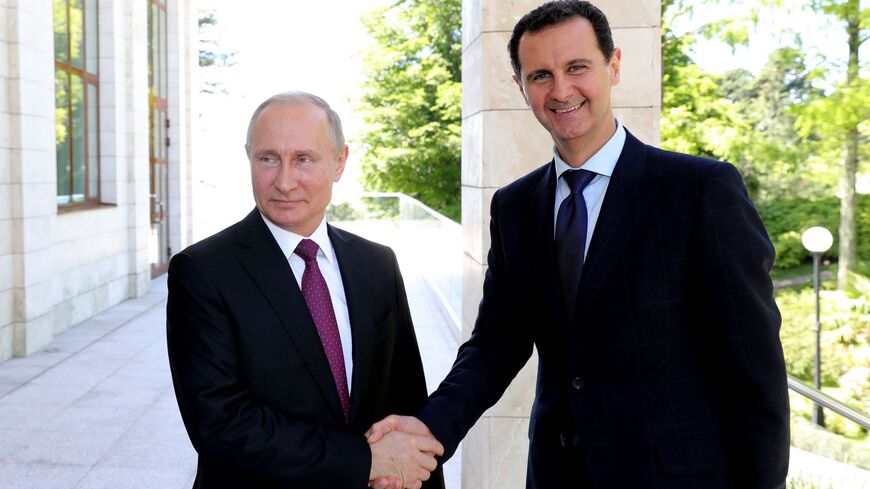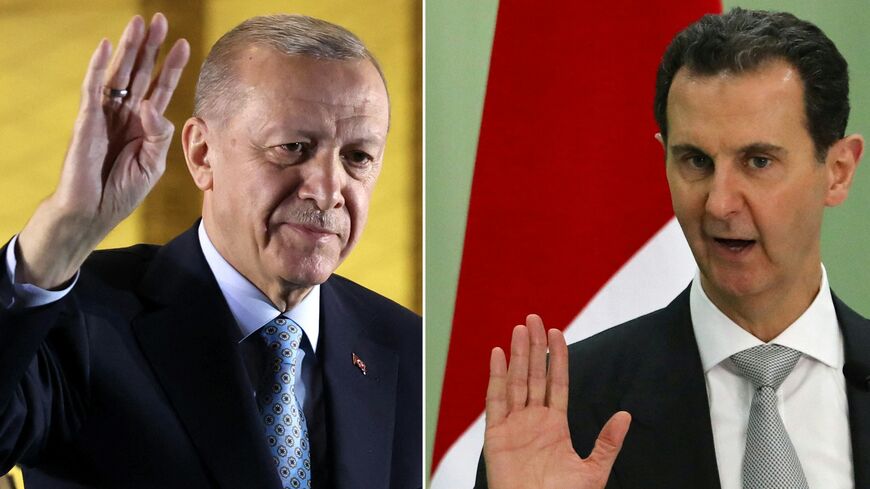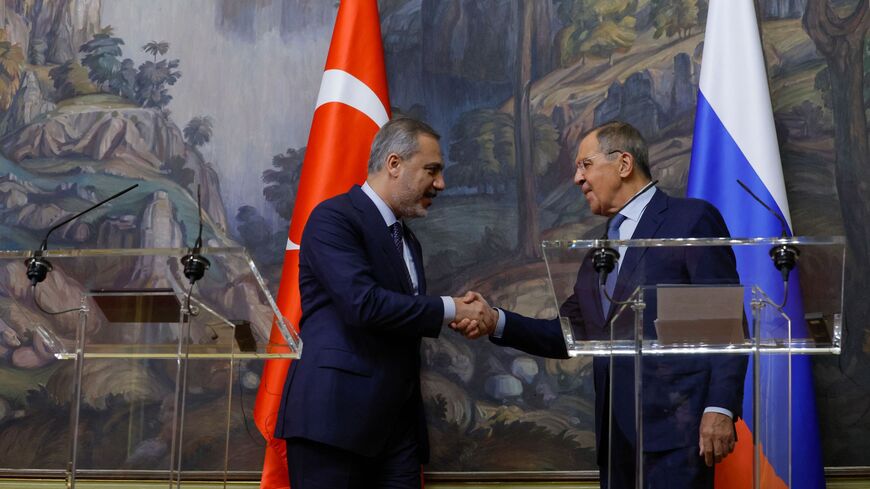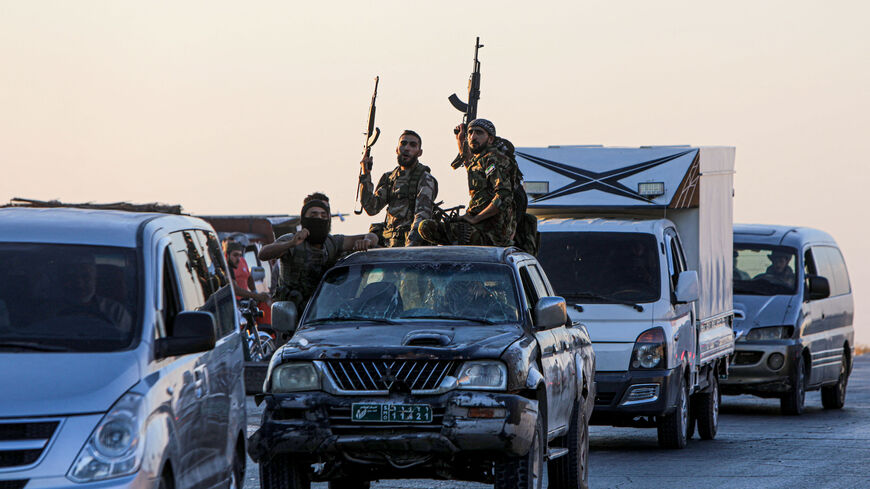Erdogan meets 'dear friend' Putin as Russia, Turkey eye cooperation on Syria
The two leaders reaffirmed their commitment to bilateral ties only days ahead of the NATO summit.

ANKARA — Less than a week before his planned travel to the NATO summit in Washington, Turkey’s President Recep Tayyip Erdogan and his Russian counterpart, Vladimir Putin, met in Astana on Wednesday and reaffirmed their commitment to bilateral ties as well as increasing cooperation in Syria.
The two leaders discussed bilateral and regional issues during their one-hour meeting on the sidelines of a Shanghai Cooperation Organization summit in the Kazakh capital, according to both Russian and Turkish readouts.
“We couldn’t meet with my dear friend for a long time,” Erdogan told Putin in the on-camera part of their meeting, reiterating the two countries' goal to increase bilateral trade volume to $100 billion from the current $55 billion.
Erdogan, along with Hungarian Prime Minister Viktor Orban, has been the sole NATO leader maintaining close contacts with Putin since Russia invaded Ukraine. The two leaders' previous meeting took place in September 2023.
But the meeting came as the two countries' trade volume is in decline, with the US increasing pressure on Ankara to clamp down on Russian companies using Turkey to bypass Western sanctions over the Ukraine war. Turkey-Russia bilateral trade has declined by more than $2 billion since January, according to official data.
“We have noted a slight decline in trade turnover over the past few months, but it remains at a fairly high level,” Putin told Erdogan during their meeting.
Briefing the Russian media ahead of the meeting on Wednesday, Kremlin spokesperson Dmitry Peskov said “various problems inevitably arise” in the two countries' ties. “There is political will to resolve them,” Peskov said, according to Russia’s Interfax news agency.
Turkey, which supplies 49% of its energy needs from Russia, did not join Western sanctions on Russia over the war in Ukraine. The two countries' trade almost doubled in 2022, reaching more than $62 billion.
Engagement with Damascus
The two leaders also discussed the Syrian conflict in which Ankara and Moscow support rival sides.
Erdogan told Putin that Turkey “is ready to cooperate” in efforts to find a solution to the war, according to the Turkish readout of the meeting.
"He stressed the importance of taking concrete steps to end the instabilities that create fertile ground for terrorist organizations, especially in the Syrian civil war... Turkey is ready to cooperate for a solution," the Turkish readout said.
Erdogan and Putin met as regional efforts for the resumption of direct dialogue between high-level Turkish and Syrian officials are increasing. Both Erdogan and Syrian President Bashar al-Assad have expressed their openness to resuming talks over the past two weeks. The Russian-mediated dialogue launched in 2022 stumbled, as Damascus preconditioned Turkish forces' withdrawal from Syrian territory before any normalization. Ankara, in turn, fears that the power vacuum from such a move could be filled by US-allied, Kurdish-led Syrian Democratic Forces, which Turkey deems a threat to its national security.
Reiterating his country’s position, Erdogan “stressed Turkey’s determination not to allow a ‘terroristan’ organization just beyond its borders,” according to the readout, in reference to Ankara’s concerns for SDF-held region’s gaining formal autonomy.
Turkey equates the Kurdish-led SDF with the outlawed Kurdistan Workers Party, which has been waging an armed campaign for Kurdish self-rule inside Turkey since 1984. The SDF is a major ally of the US-led international coalition against the Islamic State in some parts of north and eastern Syria.
While Turkey backs Syrian armed opposition groups fighting against Assad, Russia, along with Iran, are the main international backers of the Assad regime in the civil war.






